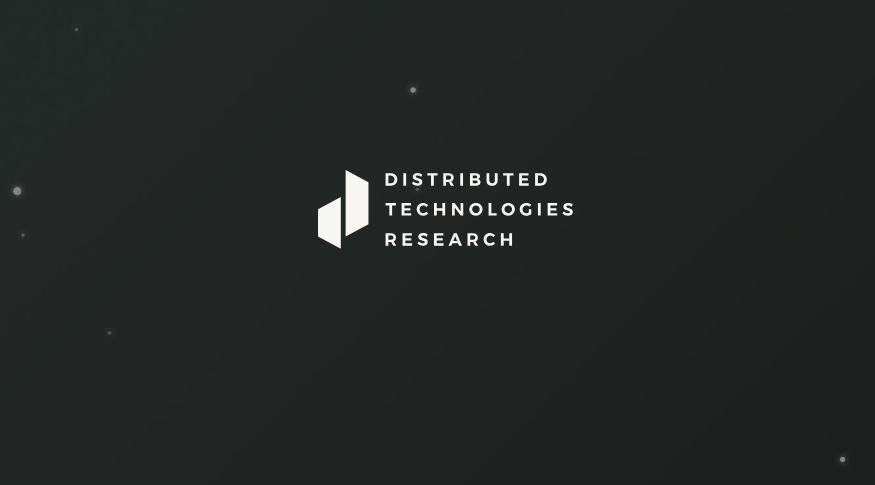Distributed Technologies Research (DTR), a non-profit foundation that funds innovative research and development of distributed technologies, today announced its official launch, and introduces its first project, Unit-e, a globally scalable decentralized payments system. Unit-e is targeting launch in the second half of 2019.
Cryptocurrencies have not yet achieved widespread adoption, in part due to scalability challenges. DTR is funding research to address the entire blockchain technology stack to deliver scalable performance. These innovations are being applied in the development of Unit-e and are applicable to all general-purpose blockchains.
“The blockchain and digital currency markets are at an interesting crossroads, reminiscent of the inflection points reached when industries such as telecom and the internet were coming of age. These are transformative times. We are nearing the point where every person in the world is connected together. Advancements in distributed technologies will enable open networks, avoiding the need for centralized authorities. DTR was formed with the goal of enabling and supporting this revolution, and it is in this vein that we unveil Unit-e.”
Distributed Technologies Research
The Foundation was established with the belief that distributed trust will be at the core of our society and that innovative new research and development is needed to achieve this. Its mission is to promote large-scale collaboration across industry and academia by linking together a global community of thought leaders, developers, and researchers across fields ranging from networking, distributed storage, information theory, communication theory, incentive design, game theory, and cryptography.
DTR is funding a distributed collaboration of researchers from top universities across the US, working on the unsolved technical challenges of blockchain scalability. The research group mixes tenured professors with rising research stars, award winners, patent holders, authors, and successful distributed technologies entrepreneurs. They each bring their individual subject matter expertise to the growing, multi-disciplinary team focused on redesigning blockchains from the ground up with a first-principles, full-stack approach.
“In the 10 years since Bitcoin first emerged, blockchains have developed from a novel idea to a field of academic research. Our approach is to first understand fundamental limits on blockchain performance, then to develop solutions that operate as close to these limits as possible, with results that are provable within a rigorous theoretical framework.”
As a non-profit, all the Foundation’s resources must be directed towards supporting research and development. DTR is committed to growing both the research collaboration and the Unit-e open-source developer community globally with ongoing support and funding.
“DTR is creating an ecosystem with a virtuous cycle. Innovative research attracts top caliber academics to the collaboration, which further accelerates the pace of innovation. This has resulted in over 10 papers so far, published (or under review) in peer-reviewed top scientific venues.”
The solutions published to date seek to form a holistic package addressing each layer of the blockchain technology stack: consensus, sharding, payment channels, privacy and security, and economics and incentives. DTR’s vision for a consummate research program on blockchains is set out in a research manifesto, “Decentralized Payment Systems: Principles and Design,” which introduces the architecture of Unit-e and will be published as a research book.
Unit-e
Money is the world’s most universal system of institutional trust, but trust in these financial institutions has been eroded. A new approach is needed, and the Foundation believes payments is the first “killer application” for blockchains. Therefore, DTR’s first initiative is a globally scalable decentralized payments network: Unit-e.
“A lack of scalability is holding back cryptocurrency adoption, and DTR’s groundbreaking research is addressing this. The Unit-e developers are turning this research into real scalable performance which will benefit a huge swath of decentralized financial applications.”
Unit-e core is a top-tier team of open-source and distributed systems engineers based in Berlin, Germany. The team represents 8 nationalities with an average of 10 years of experience building protocols, developer tools, APIs and high-scale software across multiple industries. The team ensures the Unit-e codebase maintains the highest standards for innovation, code quality, security, protocol design, and open-source readiness.
The project’s ideology is firmly rooted in transparency, with a belief in open-source, decentralized software developed in the public interest with inclusive decision-making. Good governance is essential for maintaining this ideology and fostering the long-term development of the Unit-e ecosystem.
“Having a healthy and effective governance process is important for the success of a cryptocurrency project. Unit-e has focused on addressing these topics from the start, learning lessons from a long history of successful open-source and academic projects.”
